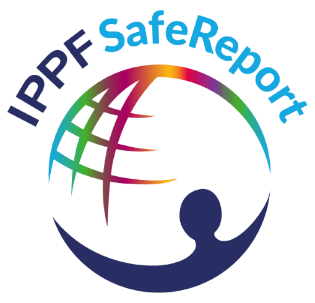
We all have the right to work or volunteer for IPPF in a safe, harm free, positive environment. IPPF beneficiaries and clients also have the right to access and receive services in a safe environment, where they are treated with dignity and respect.
IPPF is committed to creating this environment and culture; for its clients and staff and anyone else that comes into contact with IPPF, wherever they are based.
To make this culture a reality individual who work or volunteer for IPPF have a responsibility to behave appropriately at work. Policies such as IPPF’s Code of Conduct, Fraud, Respect at Work and Safeguarding (Vulnerable Adults and Children), clearly explain what acceptable behaviour at work looks like.
IPPF is committed and proactive about the protection of its finances and related assets and to this end, has a zero-tolerance response to financial wrongdoing. IPPF has Fraud Policy that provides clarity on this specialist topic.
Despite the existence of a clear Code of Conduct, an organisational commitment to zero tolerance, the existence of a range of relevant policies and procedures and everyone’s best intentions, sometimes, things do go wrong.
For example, as a member of staff you may have personally experienced, heard about or witnessed any of the following issues (non-exhaustive):
- Equality, Diversity and Inclusion, e.g., racism and all other forms of discrimination;
- Employment and Workplace Matters, e.g., non-sexual harassment, bullying, victimisation;
- Financial Wrongdoing, e.g., fraud, financial malpractice, extortion;
- Safeguarding, e.g., sexual harassment, sexual abuse, exploitation or harassment;
- Safety and Security, e.g., travel safety, international violent incidents, safety risk/incident;
- Information and Service Provision to Clients, e.g., denial of services/referral/follow up care.
IPPF SafeReport is our independent, confidential reporting service. It is operated by NAVEX Global UK on behalf of IPPF. Concerns about any of the matters listed above should be reported. If you are concerned something has happened, you do not need to be an expert about the issue – you just need to report your concern.
Why should I report a concern?
If you do not report concerns, IPPF may not be aware that these rights and responsibilities are not being upheld nor can it do anything to rectify the situation. Culture change may be led by senior colleagues, but it will not be possible unless everyone takes responsibility for that change and does their bit. This includes reporting anything that concerns you.
An effective reporting mechanism enables IPPF to understand what has gone wrong and to identify and put in place proportionate and effective support, a formal response and, where necessary, corrective actions. IPPF is accountable to its donors and regulators, who expect to be informed of a range of serious incidents including fraud, abuse, exploitation and harassment.
IPPF has a ‘Raising a Concern’ policy that underpins the actions and guiding principles it adheres to.
Who should report?
Anyone can report a concern, including IPPF clients, members of the public and anyone working or volunteering for the IPPF Secretariat, a Member Association, collaborative partner, donor etc.
How to Report a Concern
Concerns can be reported to IPPF SafeReport by anyone
24 hours a day 7 days a week 365 days a year

Web or Mobile Intake
Type the web address https://ippf.safereport.eu/web into your browser address bar. You will be guided through a series of questions. When you finish entering your answers – click submit. You will have provided us with the details of your concern.
Available in Arabic, English, French and Spanish.

Using a phone that can access the internet:
https://IPPF.SafeReport.eu/mobile
Using any device that can access the internet: https://IPPF.SafeReport.eu/web

Telephone Intake
Calls are free. Supports over 70 widely used languages. You can find the relevant telephone number on the IPPF SafeReport website.
To find out more visit: https://IPPF.SafeReport.eu
What can I expect when I report a concern?
When a concern is reported, it will be triaged and assigned to a nominated individual to progress; an Incident Coordinator. The contents of your report will only be shared with others on a strict ‘need to know’ basis in accordance with IPPF’s Confidentiality and Information Sharing Policy.
Incident Coordinators are responsible for reviewing concerns and deciding on the appropriate and proportionate response on a case-by-case basis; confidentially and in accordance with IPPF values, policies and procedures.
A response is the approach and the actions required to progress your report to conclusion. The specifics of the response progressed, the time this takes, and the actions required, depend on the content and complexity of each individual report and the people named in a report.
How will I know what progress is being made?
When you report a concern, you will receive a Report Key and your Password. Keep these safe and secure and do not share them with anyone. You will need these to access your report to see progress, read messages and to provide further information if required.
If at the point your reported the concern, you provided an email to receive notifications about progress, you will receive an email informing you that there is a message about your report that you should access and respond to or note.
If you didn’t provide an email address to receive these notifications you will need to log back into IPPF SafeReport entering the Report Key and Password that you received when you originally submitted your concern.
when








